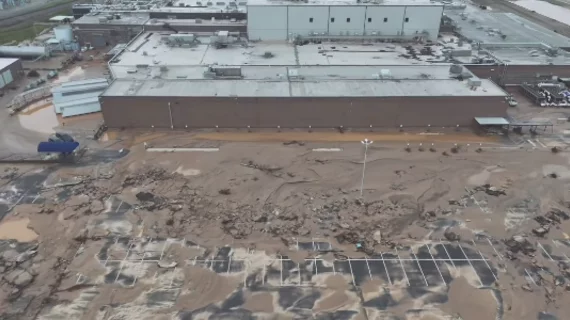Baxter begins importing IV supplies as 86% of providers report shortages
Severe damage from Hurricane Helene has caused disruptions at a Baxter International plant in North Cove, North Carolina, that provides IV supplies to hospitals all over the U.S. As a shortage looms, the company announced it has begun importing IV bags from its overseas manufacturing facilities.
The imports began last week, as Baxter works to clean and rebuild its North Cove plant. Flood waters contaminated and destroyed much of the sterile manufacturing equipment at the location. Recovery has been slow in part due to broader damage in the neighboring Asheville area, including to the city’s water treatment center, which is still not operational.
Citizens of Asheville and North Cove have been without drinking water for weeks and emergency supplies of water have been prioritized to critical infrastructure, including the local hospital.
The U.S. Food and Drug Administration (FDA) and the Department of Health and Human Services (HHS) have approved imports on supplies from Baxter plants in Canada, China, Ireland and the U.K., as local authorities work with Federal Emergency Management Agency (FEMA) personnel to rebuild Asheville’s roads and infrastructure, which were heavily damaged and left the Baxter plant isolated.
Baxter said it is planning to ramp up production globally and get the Asheville location back up to speed as soon as possible, to help mitigate IV supply shortages. The company added that it is closely monitoring stocks of products necessary for dialysis. Providers have been asked to limit new kidney disease treatments to pediatric patients until the supply chain stabilizes.
According to a survey from group purchasing organization Premier, 86% of providers are currently experiencing a shortage of IV fluids due to Hurricane Helene and Hurricane Milton disrupting the supply chain.
The full Oct. 14 statement from Baxter can be found here.

